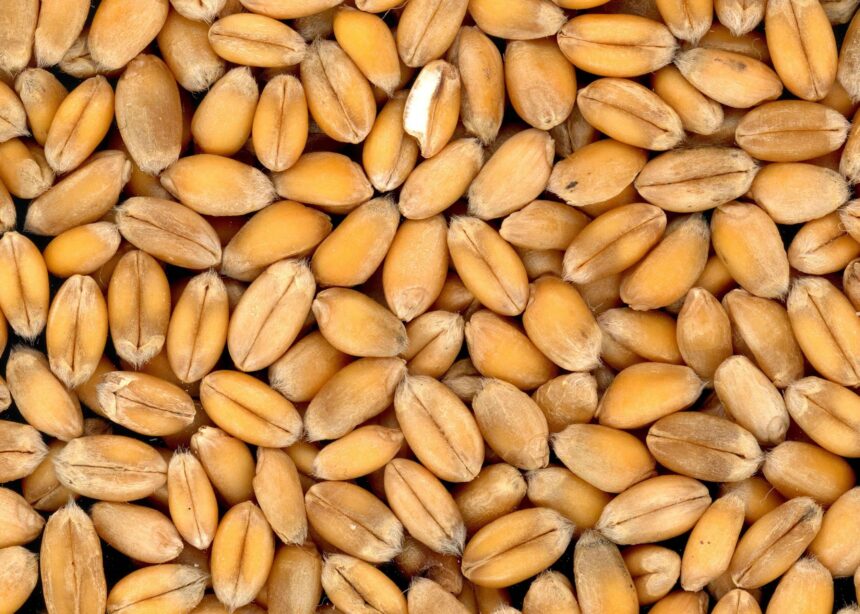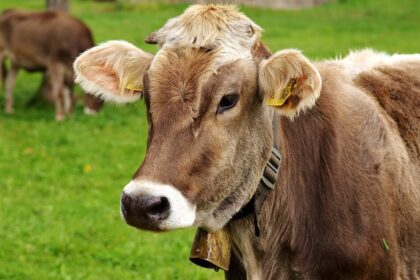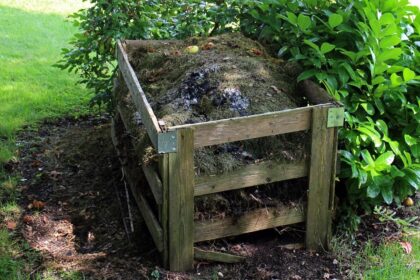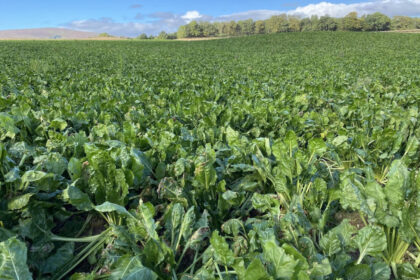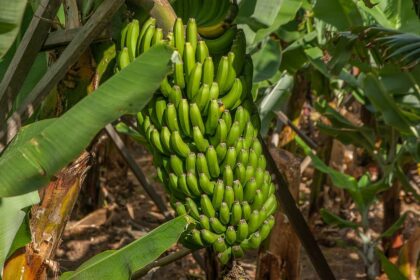Do you want to start a small-scale wheat farm? If so, you’re in luck! This comprehensive guide will teach you everything you need about this lucrative endeavor. To make a success of small-scale wheat farming, there are several things you must understand.
This article will discuss the most critical factors for success in this business. So, whether you’re just starting or have been growing Wheat for years, read on for essential tips and advice!
Related: Watermelon Farming in Kenya: From Seed to Market
Wheat Farming in Kenya – Things to Consider
Growing Wheat for profit is a simple process, but there are a few key things you need to do to ensure a successful crop. This blog post will outline the steps you need to take to grow Wheat that will sell for a high price.
1. Choose a suitable variety of Wheat.
There are many different types of Wheat, and not all are equally valuable.
Some wheat varieties are better suited for making bread, while others make Sambusa.
Do your research and choose a type of Wheat in demand that will fetch a high price at the market.
2. Plant your Wheat in well-fertilized soil.
Wheat requires a lot of nutrients to grow properly. Be sure to fertilize your soil before planting so that your plants will have everything they need to thrive.
3. Irrigate regularly.
Wheat needs a lot of water, so be sure to rinse regularly. If possible, set up an irrigation system that will water your plants automatically so you don’t have to do it by hand daily.
4. Harvest at the right time.
Timing is everything when it comes to harvesting wheat. You want to wait until the grain is fully mature before cutting it down. Otherwise, you won’t get as much grain, and it won’t be as high quality.
5. Store your grain correctly.
Once you’ve harvested your Wheat, it’s essential to store it in a cool, dry place until you’re ready to sell it.
Storing it properly will help preserve its quality and keep it from going prematurely.
By following these simple tips, you can grow Wheat that will be high in quality and fetch a reasonable price at the market. With some planning and care, growing Wheat can be profitable for any farmer.
A Step-by-step Guide on wheat farming in Kenya
Now that we know what to consider regarding wheat farming in Kenya, let’s move on to the step-by-step guide for Wheat Farming in Kenya.
Where is Wheat grown in Kenya?
Wheat is mainly cultivated in Kenya’s Laikipia West, Njoro, Narok, and Nyandarua counties.
Other areas(KenyaSee Varieties) include:
- Parts of Mount Kenya.
- Nakuru
- Samburu
- Bomet
- Tranz-Nzoia
- Parts of Uasin Gishu county
- Rongai
- Kericho
- Subukia
- Nakuru
Ecological requirement
Wheat production in Kenya requires warm summer climates ranging from 22°C to 24°C and 70% relative humidity.
Wheat also requires an adequate amount of available water for successful cultivation.
Also, read How to Grow Lucerne Grass for Profit in Kenya
Here is a step-by-step guide:
Step 1 Land Preparation: Land must be adequately prepared for wheat cultivation. This process includes plowing, harrowing, and leveling the land to ensure the soil is ready to receive seeds.
Step 2 Soil Treatment: Depending on availability and cost, once the land is prepared, it should be treated with organic or inorganic fertilizer.
Step 3 Planting: The average wheat seed rate is 60-80 kg per acre, depending on the variety. Wheat should be planted six weeks before frost days.
Step 4 Germination: Wheat seeds take about five days to germinate at an average temperature of 7°C.
Step 5 Pre-harvest Practice: Before harvesting, the wheat crop should be sprayed with a herbicide such as Glyphosate to ensure it is scorched.
Step 6 Harvesting: Wheat is ready for harvest when the plants turn green to golden-yellow and are slightly bent toward the ground. The heads containing the seeds should then be plucked and stored for sale.
After harvesting, the next step is threshing and cleaning the grain. This can be done with a threshing machine or by beating the grain heads against a hard surface to separate the kernels from the husks. The cleaned grain can then be stored in sacks or silos until it is ready for sale.
Top FAQs on Wheat on Farming in Kenya
How many bags of Wheat can one-acre produce?
The wheat yield from one acre can range from 20-25, 90KGs bags depending on the variety of Wheat and environmental conditions.
How much does it cost to plant 1 acre of Wheat?
The cost of planting one acre of Wheat in Kenya can range from Kshs 30,000-40,000, depending on the location. This cost includes land lease, field preparation, cultivation, harrowing, and seeds.
What are some common diseases associated with Wheat farming?
Common Wheat diseases in Kenya include Wheat Mildew, Wheat Rust, Wheat Blast, and Wheat Smut.
Wheat Mildew is caused by the fungal pathogen Erysiphaceae, while various fungal species in the Puccinia family cause Wheat Rust and Wheat Blast. A fungus in the Tilletiaceae family causes Wheat Smut.
How long does it take for Wheat to grow in Kenya?
The Wheat grown in Kenya usually takes 4-5 months to reach maturity, depending on the variety.
What helps Wheat grow faster?
The growth of Wheat can be improved by providing adequate soil fertility, sufficient water, and protection from disease and pests.
Adequate nutrition levels (including nitrogen and phosphorus) enhance Wheat development.
Proper crop rotation practices also boost Wheat growth. Additionally, the use of Wheat inoculants helps increase Wheat yields by providing beneficial bacteria to the seeds.
Finally, Wheat growth can be further accelerated by applying organic fertilizers and mulching.
What is the best month to grow Wheat?
The best months for Wheat farming in Kenya are usually the dry season months of June to November.
You may also like Star 9065F1 Tomato Farming & Marketing in Kenya
The Bottom Line
Wheat farming in Kenya is a profitable endeavor that can be undertaken with the proper steps and guidance. With some preparation, Wheat farmers in Kenya can reap bountiful harvests of Wheat and enjoy financial success.
For more information on Wheat Farming in Kenya, it is recommended to consult with local agricultural experts to receive specialized advice tailored to the local climate and soil conditions. This can help Wheat farmers get their crops off to a successful start in Kenya.





